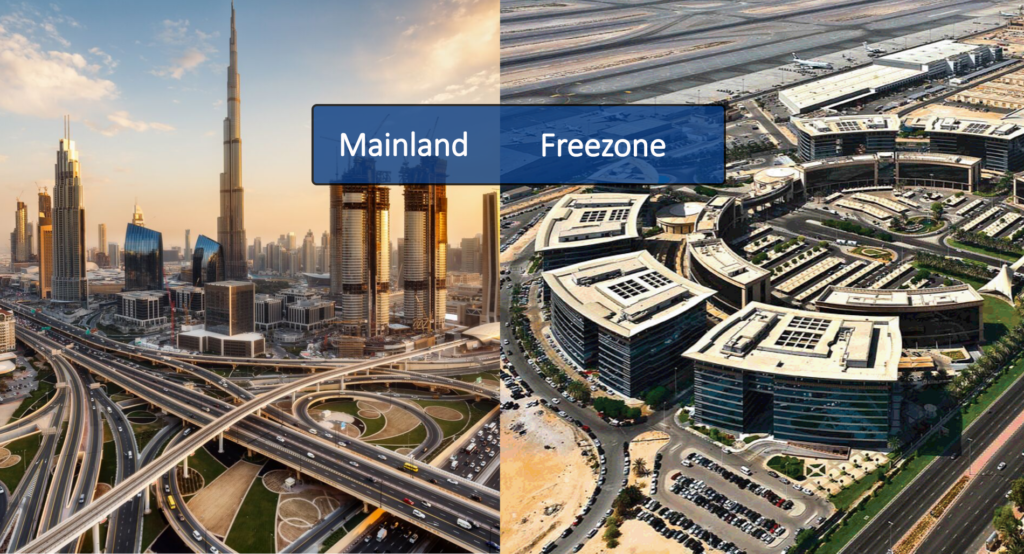The United Arab Emirates (UAE), particularly Dubai, has been considered a tax haven for companies and expatriates for several years. This reputation is well deserved as there is no tax on local and foreign companies income, capital, or profits. There are, however, some indirect taxes and duties that residents are liable to pay. Here’s our guide to Dubai tax regulations.
Dubai Tax: No Income Tax
Dubai’s tax system is advantageous as no taxes are levied on employees’ income or corporate profits.
All employees retain their full salary. They also receive additional benefits from their employer without any compensation. These may include a company car, school fees for children, or accommodation for the employee.
In the United States, most of these are considered benefits. These benefits generally lead to a significant increase in income tax and social security contributions.
Knowing the Tax System in Dubai
The Dubai tax system is particularly interesting for American expatriates. It is not by chance that we regularly hear about influencers and high-level athletes who expatriate to Dubai.
Even if the quality of life in Dubai is excellent, the Dubai tax system is likely a determining factor in this change of country of residence.
What Are the Taxes in Dubai to Be Paid by American Expatriates?
A double taxation treaty has been signed between the United States and the United Arab Emirates (UAE). This convention allows people with tax residence in Dubai to benefit from the local tax system.
The tax authorities do not differentiate between Dubai citizens and expatriates regarding income or capital taxation. Indeed, there is no specific tax regime for expatriate workers in Dubai.
In other words, American expatriates do not pay any income tax. Even from American sources, dividend and interest income are taxed according to the Dubai tax system.
However, income from real estate in the United States is subject to American taxation, similar to American tax residents.
Indirect Taxes and Taxes in Dubai
Although there are no direct taxes in Dubai, the emirate imposes certain taxes that tend to increase the cost of living in Dubai.
Value Added Tax
Before the drop in oil prices in 2018, there was no tax on goods and services in the UAE. However, the authorities have implemented a 5% value-added tax (VAT) on most goods and services to deal with the oil crisis.
No VAT is charged on the following goods and services:
- Health
- Education
- Food products
- Social services
- Products from the petroleum industry
Excise Tax
The excise tax was introduced throughout the UAE in 2017. It is an indirect tax levied on products considered harmful to the environment or consumers’ health.
The rate of this tax varies depending on the products involved:
- 50% on products containing added sugar or other sweeteners
- 100% on tobacco
- 100% on energy and alcoholic drinks
- 100% on electronic cigarettes and their derivatives
- 50% on soft drinks
The excise tax is intended to reduce the consumption of unhealthy products while generating revenue for the UAE government. However, it represents an increase in the cost of living for consumers.
Other Taxes
In addition to the indirect taxes listed above, here are some examples of other taxes and miscellaneous fees charged in Dubai:
- Rent tax (5% of the annual amount)
- Property transfer fee (4% of the property value)
- Departure fee for anyone leaving Dubai by plane (about $10)
Corporate Dubai Tax: the Rax Authorities are Planning a Change in Legislation for 2023
There is currently no corporate tax in Dubai, with two exceptions: foreign banks and oil companies.
However, the UAE authorities have recently announced their intention to introduce a corporate tax from June 2023. The tax will take the form of a 9 percent tax on the profits of foreign and Dubai-based companies.
It is a landmark decision for the UAE, which until now has relied on zero taxation to attract as many foreign investors as possible.
Companies Located in a Free Zone Will Not Be Impacted
Dubai will nevertheless remain a privileged destination for the creation of companies.
Substantial tax benefits are provided for companies headquartered in one of the 25 free zones in the UAE. In addition, these companies will not be subject to the new corporate tax.
The general rule is that all free zone companies are exempt from corporate income tax for a specified period. Note that it is possible to obtain a waiver to extend this period.
If you plan to open a company in Dubai’s free zone, contacting the Federal Tax Authority is highly recommended. The taxation rules are complex and vary according to the company’s sector of activity.









